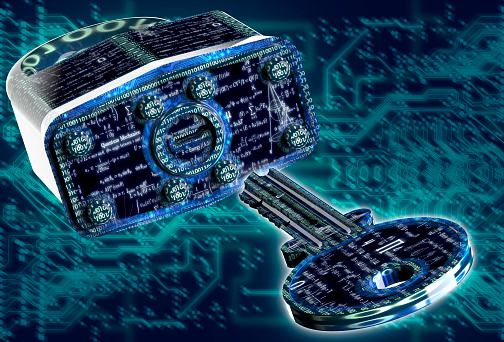A recent series of white papers released Global Knowledge and specifically authored by James Michael Stewart (CISSP, CEH, CHFI, ECSA, and Security+) reveal some startling yet unsurprising facts about our predicted-yet-probable cybersecurity future. They come in a series of 10 different predictions, and this article will synopsize or summarize the conclusions reached by Stewart and Global Knowledge (GK).

- Fully-Automated Digital Extortion. Ransomware as we know it could likely merge with another malicious activity known as doxing (or doxxing, which is where a personally-compromising dossier of information is hacked and released as a form of blackmail or libel) into something we could perhaps call ransom-doxing, whereby doxing dossiers are hacked and held for ransom in a “botnet cloud,” as James Stewart calls it, which results in a particularly vicious and personal form of ransomware or cyber blackmail.
- A Major Digital Payment System Will Be Hacked or Otherwise Compromised. We’ve already seen things like the Egyptian “test hacking” of PayPal, but Global Knowledge predicts that one of the bug-riddled “mobile payment systems” based on Apple Pay and Android Pay will be breached. This is after mobile payment systems get the bugs worked out of their systems and become widely used globally, creating “a fertile environment for multiple groups to fail to address security properly” according to the GK Report.
- Data Leaks Related to Wearables Will Occur. As wearables evolve and emerge into much greater popularity and use, their being networked via the Internet of Things and also containing personally-identifiable information – especially medical and financial – “could be used for a wide range of malicious social engineering attacks” according to the GK Report.
- The Failure of Smart Home Devices. “In 2016, it is likely that a well-known and fairly well-implemented smart device (or device ecosystem) will be compromised by hackers,” says the GK Report. This assertion is based on the ever-increasing use of and reliance on IP-oriented remotely controlled devices in the home like light bulbs, thermostats, and HVAC controls.
- Continuing Security Underperformance by Businesses. The GK Report goes on to speak of a continuation of the lack of cybersecurity that has caused so many cases of ransomware, malware, and other cyber breaches in huge corporate organizations. It speaks of further similar disasters mostly being caused by companies failing to adopt “common sense security solutions or by stress-testing their own implementations.”
- Ad and Script Blockers to Become Essential Internet Tools. With malvertising (malicious advertising), scareware, adware and other phishing schemes and viruses on the rise, the use of ad blockers and script blockers will be essential in order for PC and mobile device users to stem the flow of malicious code generated unscrupulous data-miners and hackers.
- An Increase in Employee-Focused Social Engineering Attacks. The GK Report claims that among the predicted continuation of social engineering attacks such as phishing scams, fake security programs, and phone/VoIP attack calls, that compromised employee credentials will actually emerge as the biggest social engineering threat of 2016.
- Cloud Computing Security Threats. Although cloud computing, a.k.a. remote virtualization has many benefits, the fact that your data is being stored in someone else’s building is not necessarily one of them. It actually poses more risk than if it were being housed inside a secure virtual private server (VPS) or cloud server under your own roof. This fact will continue to pose risks for business networks, and the potential of at least one major cloud service provider being heavily compromised is high in 2016 and beyond.
- Serious Security Breaches Involving Drones. Drones, as we all know, are both useful and pose risks to privacy and physical property and well-being. They can also be used to gain access to wireless networks or breach security in order to plant listening or monitoring devices. We will likely continue to see drones being involved not just in military strikes, but also cybernetic ones as well.
- Cyber Warfare Will Increase and Involve Civilians. It’s no secret that governments routinely engage in cyber warfare and hacking as a weapon of espionage and attack on foreign databases. Although private citizens have largely been left untouched by this, in the future we will likely see cyber warfare attacks that involve innocent civilians. This will probably cause outrage and a backlash against shadowy governments’ misuse of cybernetic power, resulting in laws that protect private citizens from state-sponsored cyberattack.
Ask a Cybersecurity Pro
If you need effective cybersecurity services, {company} is a proven leader in providing IT consulting and cybersecurity in {city}. Contact one of our expert IT staff at {phone} or send us an email at {email} today, and we will help you with any of your IT issues or needs.
